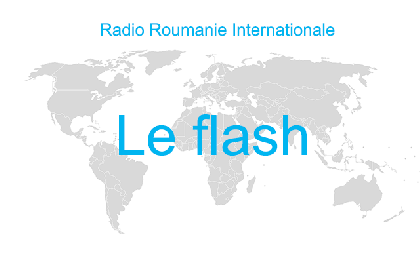Rumäniens Nationalbank hat eine Intervention auf den Finanzmärkten beschlossen, um den schnellen Anstieg des ROBOR-Index zu stoppen. Der Interbanken-Index beeinflusst die monatlichen Zinsen rumänischer Kreditnehmer mit Darlehen in der Landeswährung. Die ROBOR-Kennzahl ist eigentlich der durchschnittliche Zinssatz des Kreditgeschäfts zwischen den Handelsbanken. Alle drei Monate werden die Zinssätze der meisten Kredite in Lei der ROBOR-Entwicklung entsprechend angepasst.
Die Zentralbank hat jetzt beschlossen, den Handelsbanken Kredite in Höhe von insgesamt 2 Milliarden Euro zu einem Zinssatz von 1,75% zu gewähren. Von dieser Rekordsumme für die letzten Jahre erhofft sich die Landesbank eine Verringerung der Zins-Kennzahl. Der ROBOR-Index war zuletzt bis auf ein Dreijahres-Hoch von 1,8% geklettert. Einer der Gründe für die Entwicklung sei der längerfristige Mangel an Liquiditäten am Markt gewesen, erklärte Notenbankchef Mugur Isărescu:
Wir haben diese Finanzspritze in die Wege geleitet, da aus unseren seit Donnerstag erfassten Daten hervorgeht, dass im Vergleich zu den Vormonaten der Liquiditätsmangel sich in die Länge zieht. In der Regel dauerte er nur bis zum fünften Tag des neuen Monats, wenn die Unternehmen mit der Auszahlung der Gehälter beginnen.
Die Intervention der Landesbank bedeute allerdings nicht, dass der Interbankenzins auf das Rekordtief von vor einigen Monaten zurückfallen werde, sagte der Notenbank-Gouverneur noch. Notenbank-Sprecher Dan Suciu erklärte zudem, dass die BNR zwar schon mit einer Zunahme des ROBOR-Index gerechnet habe, allerdings nicht mit einer deratig abrupten Entwicklung.
Der ROBOR ist ein Bestandteil der monatlichen Raten, die die Bevölkerung zahlt. Er ist aber nicht mit der gesamten Rate gleichzusetzen. Jetzt ist er um 0,5 Prozentpunkte gestiegen, so ist es nun mal. Ich glaube, dass jeder das nachrechnen kann. Im letzten Monat oder verglichen mit dem Vorjahreswert ist er um 0,8 Prozentpunkte höher. Das ist eine beachtliche Summe, denn das wird einige Dutzend Lei mehr bedeuten, oder gar 100. Aber die große Gefahr ist nicht hier zu suchen. Es wird einen Inflationsdruck geben, eigentlich ist er bereits jetzt zu spüren.
Sowohl die Beamten der rumänischen Notenbak BNR wie auch der Finanzminister Ionuţ Mişa erklärten das mangelnde Guthaben bei Kreditinstitutionen dadurch, dass der Staat die Einnahme von Steuern und Gebühren verbessert habe. Der Beschluss der Zentralbank, den Zeitraum, in dem die Zinsen schwanken können, zu reduzieren, soll ebenfalls den Markt beruhigen. Der BNR-Vorstand beschloss, die Leitzins bei 1,75% im Jahr zu behalten, die Zins, zu der die Banken, die in Liquiditätnot sind, Geld ausleihen, um 0,25 Punkte zu reduzieren. Außerdem beschloss der Aufsichtsrat, die die Zins auf Einlagen um die gleiche Marge zu erhöhen. Die vom Vorstand getroffenen Maßnahmen zielen darauf ab, die Preise mittelfristig stabil zu erhalten, so dass langfristig die Wirtschaft angekurbelt wird, erklärte der Guverneur der Rumänischen Notenbank, Mugur Isarescu.



